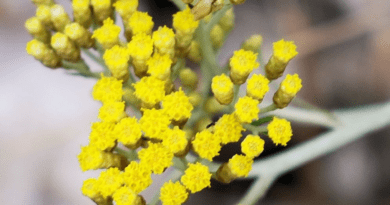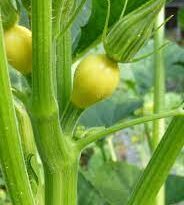The Nutmeg Fragments: Economic Importance, Uses, and By-Products
Nutmeg fragments refer to small pieces or broken bits of the nutmeg seed (Myristica fragrans). These fragments are typically obtained when the nutmeg seed is cracked open to extract the kernel inside.
The nutmeg seed itself is contained within a hard, woody shell known as the endocarp, which is surrounded by the red, lace-like aril called mace. Once the outer layers are removed, the seed kernel is exposed. In culinary use, the seed is often grated or ground into a fine powder to release its aromatic and flavorful compounds.
Sometimes during handling or processing, nutmeg seeds can break or fragment into smaller pieces. These fragments can vary in size from tiny bits to larger chunks, depending on how the seed was handled or cracked open. While not as uniform as whole seeds or ground powder, nutmeg fragments still retain the spice’s characteristic aroma and flavor.
Culinarily, nutmeg fragments can be used similarly to whole seeds or ground powder. They can be grated using a fine grater or microplane to release their flavor directly into dishes. Fragments are particularly useful when a recipe calls for a coarser texture or when added to infusions such as mulled wine or cider where their flavors can infuse over time.
In traditional medicine, nutmeg has been used for its potential health benefits, including digestive aid properties, although its use should be approached with caution due to its potency. Nutmeg fragments, like whole seeds or powder, should be stored in a cool, dry place away from direct sunlight to preserve their flavor and aroma.
Nutmeg fragments are small pieces or broken bits of the nutmeg seed that retain the spice’s characteristic aroma and flavor. They are versatile in culinary applications, offering an alternative texture to whole seeds or ground powder, and can be used in both savory and sweet dishes to enhance their taste profile.
The Economic Importance and Uses of Nutmeg Fragments

1. Culinary Use: Nutmeg fragments are used as a spice in cooking, providing a warm, sweet flavor to dishes such as soups, stews, and sauces.
2. Baking Ingredient: Nutmeg fragments are often ground and used in baking to flavor cakes, cookies, and pastries.
3. Beverage Flavoring: Nutmeg fragments are used to add flavor to beverages such as eggnog, chai tea, and mulled wine.
4. Traditional Medicine: Nutmeg fragments are used in traditional medicine for their digestive, anti-inflammatory, and analgesic properties.
5. Aromatherapy: The essential oils derived from nutmeg fragments are used in aromatherapy for their calming and stress-relieving effects.
6. Perfumery: Nutmeg fragments are used in the fragrance industry to create perfumes and colognes with a spicy, warm scent.
7. Antioxidant Properties: Nutmeg fragments contain antioxidants that help combat oxidative stress and promote overall health.
8. Anti-inflammatory Agent: Used in natural remedies, nutmeg fragments help reduce inflammation and pain in conditions such as arthritis.
9. Food Preservatives: The antimicrobial properties of nutmeg fragments make them useful as a natural preservative in food products.
10. Cosmetic Industry: Nutmeg fragments are used in skincare products for their exfoliating and anti-aging properties.
11. Nutritional Supplements: Nutmeg fragments are included in dietary supplements for their potential health benefits, including improved digestion and circulation.
12. Meat Processing: Nutmeg fragments are used as a seasoning in sausages, meatloafs, and other processed meats to enhance flavor.
13. Sauces and Condiments: Nutmeg fragments are used in the preparation of sauces, gravies, and condiments to add depth to the flavor.
14. Dairy Products: Nutmeg fragments are used to flavor dairy products such as milk, cheese, and custards.
15. Confectionery: Nutmeg fragments are used in the confectionery industry to flavor sweets, candies, and chocolates.
16. Pickling Spice: Nutmeg fragments are a key ingredient in pickling spices, contributing to the preservation and flavor of pickled vegetables.
17. Health Drinks: Nutmeg fragments are used in health drinks and smoothies for their potential health benefits.
18. Natural Dye: Nutmeg fragments can be used as a natural dye in food and cosmetics.
Read Also Scrapie in Sheep and Goats: Description, Damages Caused, Control and Preventive Measures
The Products and By-products That Can Be Derived From Nutmeg Fragments

1. Essential Oil: Extracted from nutmeg fragments through steam distillation, used in aromatherapy and perfumery.
2. Nutmeg Powder: Ground nutmeg fragments used as a spice in cooking and baking.
3. Nutmeg Extract: Created using solvent extraction, used in flavorings and nutritional supplements.
4. Fragrance Oil: Derived from nutmeg fragments, used in perfumes and scented products.
5. Culinary Seasonings: Nutmeg fragments are ground into powder and used as a versatile seasoning in various culinary applications.
6. Antimicrobial Agents: Nutmeg fragments contain antimicrobial compounds used in food preservation.
7. Natural Dye: Extracted from nutmeg fragments for use in cosmetics and food coloring.
8. Herbal Extracts: Produced using solvent extraction for use in traditional and modern medicine.
9. Aromatherapy Products: Essential oils and extracts from nutmeg fragments are used in diffusers, candles, and massage oils.
10. Skincare Products: Nutmeg fragments are used in exfoliating scrubs, face masks, and anti-aging creams.
11. Nutritional Supplements: Nutmeg fragments are included in supplements for their digestive and circulatory benefits.
12. Spiced Teas: Nutmeg fragments are used in herbal and spiced tea blends for added flavor and health benefits.
13. Baking Ingredients: Nutmeg fragments are ground into powder and used in many baked goods, providing distinctive flavor.
14. Natural Preservatives: Nutmeg fragments are used in natural food preservation methods.
15. Alcoholic Beverages: Nutmeg fragments are used in the production of spiced liquors and liqueurs.
16. Dairy Flavorings: Nutmeg fragments flavor dairy products such as cheese and milk-based desserts.
17. Pickling Spices: Nutmeg fragments are used in spice blends for pickling vegetables.
Read Also Management of Breeding Stock in Sheep and Goats
Frequently Asked Questions (FAQ’s) About Nutmeg Fragments

1. What are nutmeg fragments?
Nutmeg fragments are pieces of the nutmeg seed, known for their warm, sweet flavor and aromatic properties.
2. How are nutmeg fragments used in cooking?
Nutmeg fragments are ground and used as a spice to flavor dishes such as soups, stews, sauces, and baked goods.
3. Can nutmeg fragments be used in beverages?
Yes, nutmeg fragments are used to flavor beverages like eggnog, chai tea, and mulled wine.
4. What are the health benefits of nutmeg fragments?
Nutmeg fragments have digestive, anti-inflammatory, and antioxidant properties that contribute to overall health.
5. How is nutmeg essential oil extracted?
Nutmeg essential oil is extracted from nutmeg fragments through steam distillation.
6. Are nutmeg fragments used in the cosmetic industry?
Yes, nutmeg fragments are used in skincare products for their exfoliating and anti-aging benefits.
7. What are the medicinal uses of nutmeg fragments?
Nutmeg fragments are used in traditional medicine to treat digestive issues, reduce inflammation, and relieve pain.
8. Can nutmeg fragments be used as a preservative?
Yes, the antimicrobial properties of nutmeg fragments make them useful as a natural food preservative.
9. How do nutmeg fragments contribute to baking?
Nutmeg fragments are ground into powder and added to baked goods like cakes, cookies, and pastries for flavor.
10. What are the industrial uses of nutmeg fragments?
Nutmeg fragments are used in the production of essential oils, natural dyes, perfumes, and food flavorings.
Read Also How to Make an Avocado Tree Bear Fruit









